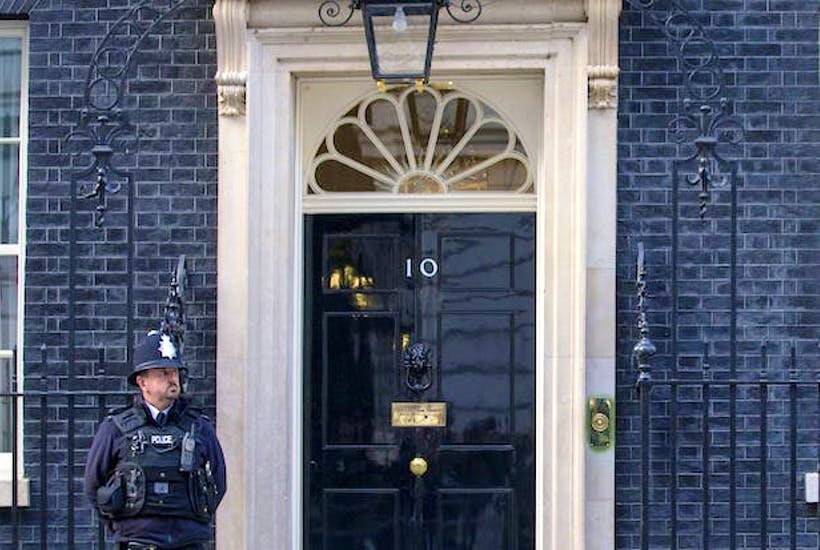Earlier today, I sent a message to a contact in Number 10 asking them how the Brexit talks were going. They sent a long reply which I think gives a pretty clear sense of where they think things are.
So, in the interest of trying to let people understand where Number 10 reckon the negotiations are, here is their response:
‘The negotiations will probably end this week. Varadkar doesn’t want to negotiate. Varadkar was keen on talking before the Benn Act when he thought that the choice would be ‘new deal or no deal’. Since the Benn Act passed he has gone very cold and in the last week the official channels and the backchannels have also gone cold. Varadkar has also gone back on his commitments — he said if we moved on manufactured goods then he would also move but instead he just attacked us publicly. It’s clear he wants to gamble on a second referendum and that he’s encouraging Barnier to stick to the line that the UK cannot leave the EU without leaving Northern Ireland behind.
‘There are quite a few people in Paris and Berlin who would like to discuss our offer but Merkel and Macron won’t push Barnier unless Ireland says it wants to negotiate. Those who think Merkel will help us are deluded. As things stand, Dublin will do nothing, hoping we offer more, then at the end of this week they may say “OK, let’s do a Northern Ireland only backstop with a time limit”, which is what various players have been hinting at, then we’ll say no, and that will probably be the end.
‘Varadkar thinks that either there will be a referendum or we win a majority but we will just put this offer back on the table so he thinks he can’t lose by refusing to compromise now. Given his assumptions, Varadkar’s behavior is arguably rational but his assumptions are, I think, false. Ireland and Brussels listen to all the people who lost the referendum, they don’t listen to those who won the referendum and they don’t understand the electoral dynamics here.
‘If this deal dies in the next few days, then it won’t be revived. To marginalize the Brexit party, we will have to fight the election on the basis of “no more delays, get Brexit done immediately”. They thought that if May went then Brexit would get softer. It seems few have learned from this mistake. They think we’re bluffing and there’s nothing we can do about that, not least given the way May and Hammond constantly talked tough then folded.
‘So, if talks go nowhere this week, the next phase will require us to set out our view on the Surrender Act. The Act imposes narrow duties. Our legal advice is clear that we can do all sorts of things to scupper delay which for obvious reasons we aren’t going into details about. Different lawyers see the “frustration principle” very differently especially on a case like this where there is no precedent for primary legislation directing how the PM conducts international discussions.
‘We will make clear privately and publicly that countries which oppose delay will go the front of the queue for future cooperation — cooperation on things both within and outside EU competences. Those who support delay will go to the bottom of the queue. [This source also made clear that defense and security cooperation will inevitably be affected if the EU tries to keep Britain in against the will of its government] Supporting delay will be seen by this government as hostile interference in domestic politics, and over half of the public will agree with us.
‘We will also make clear that this government will not negotiate further so any delay would be totally pointless. They think now that if there is another delay we will keep coming back with new proposals. This won’t happen. We’ll either leave with no deal on October 31 or there will be an election and then we will leave with no deal.
‘When they say “so what is the point of delay?”, we will say “This is not our delay, the government is not asking for a delay — Parliament is sending you a letter and Parliament is asking for a delay but official government policy remains that delay is an atrocious idea that everyone should dismiss. Any delay will in effect be negotiated between you, Parliament, and the courts — we will wash our hands of it, we won’t engage in further talks, we obviously won’t given any undertakings about cooperative behavior, everything to do with “duty of sincere cooperation” will be in the toilet, we will focus on winning the election on a manifesto of immediately revoking the entire EU legal order without further talks, and then we will leave. Those who supported delay will face the inevitable consequences of being seen to interfere in domestic politics in a deeply unpopular way by colluding with a Parliament that is as popular as the clap.
‘Those who pushed the Benn Act intended to sabotage a deal and they’ve probably succeeded. So the main effect of it will probably be to help us win an election by uniting the leave vote and then a no deal Brexit. History is full of such ironies and tragedies.’
Now, this is — obviously — only one side of the negotiations view of things. It does, though, make clear Downing Street’s pessimism about getting a deal this week and its thinking about how to handle the coming extension and election campaign.
This article was originally published on The Spectator’s UK website.



















